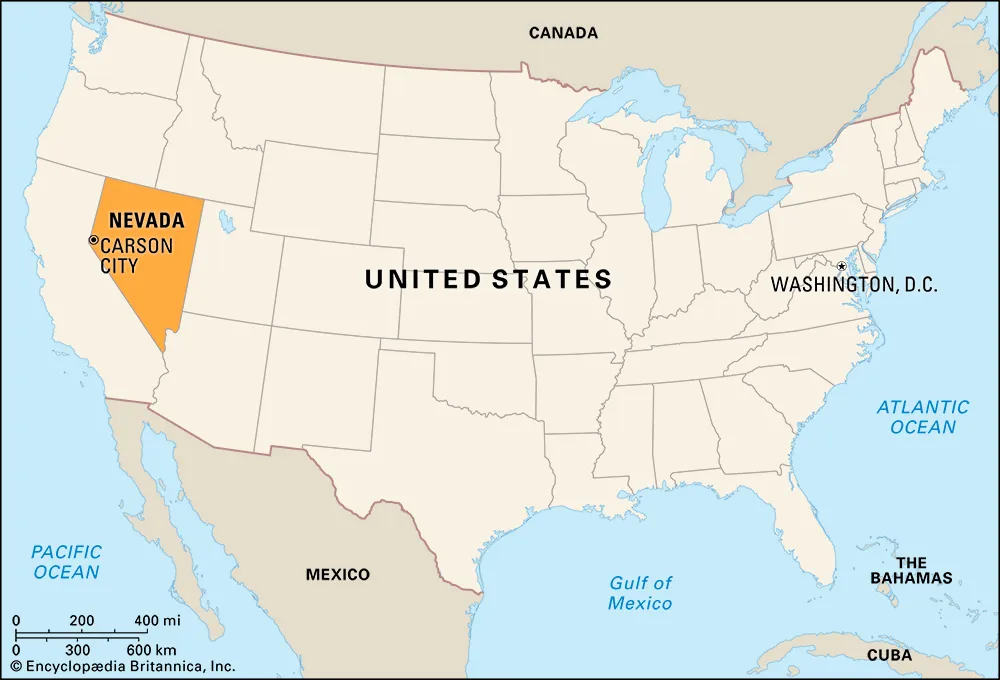
What is a Registered Agent in Nevada?
In Nevada, a Registered Agent serves as the designated representative of a business entity, responsible for receiving important legal and tax documents on behalf of the company. This includes the service of process, such as lawsuits and other legal actions, as well as official state communications like compliance notices and tax documents. The role of a Registered Agent is crucial for ensuring that there is a reliable method for external parties to contact a business within the legal framework.
Here are some key aspects of Registered Agents in Nevada:
Eligibility: A Registered Agent in Nevada can be either an individual resident of Nevada or a business entity authorized to conduct business in Nevada, both of which must have a physical street address in the state (a registered office).
Availability: The Registered Agent must be available at the registered office address during normal business hours to personally accept legal and official documents on behalf of the business.
Compliance Role: Having a Registered Agent helps a business maintain compliance with Nevada state laws and regulations, ensuring that all necessary legal and state documents are handled appropriately and in a timely manner.
Changing a Registered Agent: If a Nevada business needs to change its Registered Agent, it must file the appropriate paperwork with the Nevada Secretary of State and pay any applicable fee to update the official records.
Public Information: The name and address of a business’s Registered Agent are part of the public record and can be accessed through searches from the Nevada Secretary of State’s office, contributing to transparency and accountability in business operations.
How can I determine if my Nevada business needs a Registered Agent?
In Nevada, most formal business entities are required to have a Registered Agent. Here are some factors to consider in determining if your Nevada business needs a Registered Agent:
Business Entity Type: If your business is registered as a corporation, limited liability company (LLC), limited partnership (LP), limited liability partnership (LLP), or any other formal business entity with the Nevada Secretary of State, you are generally required to have a Registered Agent.
Nevada Business Operations: If your business is formed in another state but conducts business operations in Nevada, it is considered a foreign entity and must designate a Registered Agent in Nevada. This is necessary for receiving legal documents and official communications from the state.
Legal Requirements: The Nevada Revised Statutes outline the requirement for a Registered Agent to ensure that there is a reliable method for the state to serve legal documents and official notices to a business entity.
If your business falls under any of the categories mentioned above, it is generally mandatory to have a Registered Agent. The Registered Agent must have a physical address in Nevada (not a P.O. Box) and be available during regular business hours to receive legal and official documents on behalf of the business.
It’s important to ensure compliance with the state’s requirements by appointing a Registered Agent if necessary. If you are unsure whether your business needs a Registered Agent in Nevada, consulting with a legal professional or contacting the Nevada Secretary of State’s office can provide accurate guidance tailored to your specific business situation.
What does a Registered Agent do for a Nevada business?

A Registered Agent plays a vital role for any business operating in Nevada, offering several essential services that ensure the company remains in good standing with state law and is able to operate efficiently. The responsibilities of a Registered Agent include:
Legal Document Receipt: The Registered Agent is responsible for accepting legal documents, including service of process (lawsuits, subpoenas, and other legal actions), on behalf of the business. This ensures that the business can respond to legal actions in a timely manner.
Official State Communication: They receive official correspondence from the state, such as notices of annual reports, tax documents, and other compliance-related notifications. This helps the business stay informed about its obligations under Nevada law.
Maintaining Privacy: By having a Registered Agent, a business owner’s personal address can remain off public records, aiding in the protection of their privacy. The Registered Agent’s address is used in public documents instead.
Ensuring Compliance: The Registered Agent helps a business maintain its legal compliance by reminding the business of important filing deadlines and compliance requirements, thereby reducing the risk of penalties for late filings or non-compliance.
Availability During Business Hours: Registered Agents must be available at a physical location in Nevada during normal business hours to accept documents in person. This ensures that there is always a reliable point of contact available to receive crucial documents without delay.
The role of a Registered Agent is crucial for maintaining the legal health and operational effectiveness of a Nevada business. Ensuring that a reliable and efficient Registered Agent is appointed is an important step in setting up and maintaining a business in Nevada.
Are there any legal requirements specific to Nevada when selecting a Registered Agent for my business?
Yes, there are specific legal requirements outlined by Nevada law when selecting a Registered Agent for your business. These requirements ensure that the state has a consistent and reliable way to communicate with businesses. Here are the key legal requirements for Registered Agents in Nevada:
Physical Presence: The Registered Agent must have a physical address (known as the registered office) in Nevada. P.O. Boxes or virtual offices are not acceptable as the registered office because the agent must be able to receive legal documents in person.
Availability: The Registered Agent must be available at the registered office address during normal business hours to accept legal documents and official notices on behalf of the business. This facilitates timely communication and ensures the business can respond promptly to legal actions or state requirements.
Consent to Serve: While Nevada law does not explicitly demand documented consent from the chosen Registered Agent, it is highly recommended and considered best practice for the individual or entity to explicitly agree to serve as your business’s Registered Agent. This helps ensure the agent is aware of their responsibilities and is prepared to fulfill them effectively.
Qualification: If the Registered Agent is an individual, they must be a resident of Nevada. If the Registered Agent is a company, it must be authorized to do business in Nevada. This ensures that the agent is familiar with Nevada laws and practices.
Listing Requirements: When filing formation documents with the Nevada Secretary of State, the name and address of your Registered Agent must be included. Any changes to your Registered Agent’s information must be reported to the state through a Statement of Change of Registered Agent filing.
Adhering to these requirements when selecting a Registered Agent is crucial for maintaining your business’s good standing with the state of Nevada. The Registered Agent serves as a critical bridge between your business and the state, handling essential documents and helping your business meet its legal obligations.
How often should a Nevada business update its Registered Agent information?

In Nevada, there isn’t a set frequency for how often a business must update its Registered Agent information, but it’s crucial to update this information with the Nevada Secretary of State anytime there are changes to the Registered Agent’s details. This includes changes to the Registered Agent’s name, address, or the agent itself. Keeping Registered Agent information current ensures that your business can be reached reliably for legal and state communications. Here are scenarios when you should consider updating your Registered Agent information:
Change of Agent: If you change your Registered Agent to another individual or service, you must file an update immediately to maintain compliance with state regulations.
Address Change: Should your Registered Agent’s address change, you need to update this information to ensure that all official and legal documents reach your agent without delay.
Agent Availability: If for any reason your Registered Agent can no longer fulfill their duties during normal business hours, you’ll need to appoint a new agent who can.
Agent Qualification Changes: If your Registered Agent no longer meets the state’s qualifications, such as a business entity no longer authorized to do business in Nevada or a resident moving out of state, you must select a new agent.
Updates to your Registered Agent information can usually be made online or by filing the appropriate paperwork with the Nevada Secretary of State’s office. Ensure compliance by addressing changes promptly, thereby avoiding potential legal and operational complications for your business.
What is the easiest way to get a Registered Agent in Nevada?
Securing a Registered Agent in Nevada is a pivotal step in establishing and maintaining the compliance and operation of your business. The easiest and most efficient way to appoint a Registered Agent is by utilizing a professional Registered Agent service. Among the numerous options available, FormPros offers a standout Registered Agent service tailored specifically for Nevada businesses.
Why choose FormPros for your Nevada Registered Agent service?
Reliability and Professionalism: FormPros provides a reliable and professional service, ensuring that all your important legal and state documents are handled promptly and accurately.
Convenience: With FormPros, you can easily appoint or change your Registered Agent with minimal hassle, streamlining your business’s compliance processes.
Privacy Protection: Using FormPros as your Registered Agent acquisition service helps protect your privacy, as the Registered Agents’ address will be listed on public records, not your personal or business address.
Compliance Assistance: Your Registered Agent not only acts as a conduit for receiving legal documents but also assists in keeping your business in compliance with Nevada’s legal and regulatory requirements.
FormPros’ Registered Agent service takes the burden off your shoulders, allowing you to focus more on growing your business while ensuring that you remain in good standing with the state. Our expert team understands the nuances of Nevada business laws and regulations, making us a great partner for your company.
Ensuring your business has a competent and efficient Registered Agent in Nevada is essential for uninterrupted operations. With FormPros, you can rest assured that your business compliance and document handling are in professional hands. Consider securing our Registered Agent service today to benefit from our expertise and dedicated support.
How do I change a Registered Agent in Nevada?

Changing your Registered Agent in Nevada is a straightforward process. It involves notifying the Nevada Secretary of State of the change, either online or by submitting the appropriate form. Here’s a step-by-step guide on how to make this change:
Determine Your New Registered Agent: Before making any changes, ensure that you have confirmed with your new Registered Agent that they are willing and able to take on the responsibilities. This includes being available during business hours and having a physical address in Nevada.
Obtain the Required Forms: You will need to complete the “Statement of Change of Registered Agent by Represented Entity” form. This form is available for download from the Nevada Secretary of State’s website or can be filed online through the Secretary of State’s online filing system.
Complete the Form: Fill out the form with the necessary information, including the business entity name, the current Registered Agent information, and the new Registered Agent information. The form must be signed by an authorized individual within the company.
Submit and Pay the Filing Fee: There is a filing fee associated with changing your Registered Agent in Nevada. Verify the current fee on the Nevada Secretary of State’s website. The completed form along with the fee can be submitted online, by mail, or in person. Online submissions typically process faster than paper filings.
Confirm the Change: After submitting your form, it’s important to receive confirmation from the Nevada Secretary of State that your Registered Agent change has been processed. Keep a record of this confirmation for your business records.
Changing your Registered Agent in Nevada doesn’t have to be a complicated process. By following these steps and ensuring you submit all the required information, your business can smoothly transition to your new Registered Agent, maintaining compliance with Nevada state laws.
Can I be my own Registered Agent in Nevada?
Yes, in Nevada, you are allowed to act as your own Registered Agent for your business, provided you meet specific requirements set forth by the state. This option can be suitable for some business owners, depending on their circumstances. Here are the key conditions you must satisfy to be your own Registered Agent in Nevada:
Physical Address: You must have a physical address in Nevada (not just a P.O. Box) where you can receive legal documents and official government correspondence in person during normal business hours.
Availability: You must be available at the listed physical address during regular business hours to accept service of process and other legal documents. This is crucial for ensuring that any legal actions against your business can be promptly attended to.
Being your own Registered Agent can offer convenience and savings on service fees, but it also requires being diligent about being available during business hours to receive important documents. Additionally, because the Registered Agent’s address is public record, using your home or business address will make that information publicly accessible, which might not be desirable for privacy reasons.
Before deciding to be your own Registered Agent, consider whether you can consistently meet these requirements and maintain compliance with Nevada state law. Some business owners opt for a professional Registered Agent service to ensure that these responsibilities are handled professionally, offering peace of mind and protecting personal privacy.
Is it possible to appoint an out-of-state Registered Agent for your Nevada business?
In Nevada, as in most states, the primary requirement for a Registered Agent is that the agent or the agency provides a physical address within the state where legal documents can be physically served during normal business hours. This essentially means that your Registered Agent must have a physical presence in Nevada.
Because of this requirement:
An out-of-state individual or company cannot serve as your Registered Agent in Nevada unless they have a physical office or address in Nevada that meets the state’s requirements.
However:
Many national Registered Agent service providers operate in multiple states, including Nevada. These services have physical offices in Nevada, which allows them to accept legal documents on behalf of various businesses despite being headquartered outside of the state.
To ensure compliance with Nevada state law, if you are considering appointing a Registered Agent who is not physically based in Nevada, you should verify that they have a legitimate physical office in the state where they can receive legal paperwork. This setup ensures your business maintains its good standing with the state by meeting all legal requirements for a Registered Agent.
Are Registered Agents from Nevada responsible for any fees or taxes?

In Nevada, the primary role of a Registered Agent is to receive legal documents, official government communications, and compliance-related notifications on behalf of a business entity. Registered Agents themselves are not directly responsible for paying fees or taxes that are due by the business they represent. However, there are several points to consider regarding the financial responsibilities associated with being a Registered Agent and the business’s obligations:
Business Fees and Taxes: It is the business entity’s responsibility to pay any fees, taxes, and filings required by the state of Nevada. This includes the Annual List of Officers and Directors and Business License renewal fees, among other possible state-imposed taxes and fees.
Registered Agent Service Fees: If a business hires a professional Registered Agent service, there will be a service fee. This fee is paid by the business entity to the Registered Agent or the agency for their services and is not a fee imposed by the state.
Communication and Compliance: While Registered Agents themselves are not responsible for the payment of the business’s taxes or state fees, they often play a crucial role in ensuring that business entities are informed about deadlines and requirements. This can include notification of upcoming renewal dates for the business license or annual reports, thereby assisting the business in maintaining compliance and avoiding late fees or penalties.
It’s important for both business owners and Registered Agents in Nevada to understand their respective roles in regard to the financial obligations of the business. The Registered Agent ensures that legal and state documents are received and communicated to the business in a timely manner, while the payment of fees and adherence to tax laws remain the responsibility of the business entity.
Sign Up for a Registered Agent in Nevada Now
State Specific Registered Agent Service
- Alabama
- Alaska
- Arizona
- Arkansas
- California
- Colorado
- Connecticut
- Delaware
- Florida
- Georgia
- Hawaii
- Idaho
- Illinois
- Indiana
- Iowa
- Kansas
- Kentucky
- Louisiana
- Maine
- Maryland
- Massachusetts
- Michigan
- Minnesota
- Mississippi
- Missouri
- Montana
- Nebraska
- Nevada
- New Hampshire
- New Jersey
- New Mexico
- New York
- North Carolina
- North Dakota
- Ohio
- Oklahoma
- Oregon
- Pennsylvania
- Rhode Island
- South Carolina
- South Dakota
- Tennessee
- Texas
- Utah
- Vermont
- Virginia
- Washington
- West Virginia
- Wisconsin
- Wyoming
Nevada Registered Agent FAQs
-
What is the main function of a Registered Agent in Nevada?
The main function of a Registered Agent in Nevada is to receive and forward legal documents, including service of process, compliance documents, and other state correspondence to the business entity they represent.
-
Can a Nevada corporation serve as its own Registered Agent?
No, a corporation cannot serve as its own Registered Agent. However, an individual within the corporation, such as an officer or director who has a physical address in Nevada and is available during normal business hours, can serve as the Registered Agent.
-
How do I know if my Registered Agent is still valid?
You can verify the status of your Registered Agent by checking your business entity's information on the Nevada Secretary of State's website. It's crucial to ensure that your Registered Agent's details are up-to-date.
-
What happens if my Registered Agent resigns?
If your Registered Agent resigns, you will need to appoint a new Registered Agent promptly to avoid falling out of compliance with Nevada state regulations. The state usually provides a grace period in which to make this update.
-
Are there any penalties for not having a Registered Agent in Nevada?
Yes, failing to maintain a Registered Agent may lead to administrative dissolution of your business entity by the state, along with potential fines and the inability to legally operate or defend lawsuits in Nevada.
-
Can a Nevada LLC be its own Registered Agent?
An LLC cannot serve as its own Registered Agent. However, a member or manager of the LLC who meets the necessary requirements can act as the Registered Agent for the LLC.
-
How quickly do I need to update Registered Agent information after a change?
Any changes to your Registered Agent's information should be reported to the Nevada Secretary of State as soon as possible. Prompt updates help maintain compliance and ensure uninterrupted receipt of important documents.
-
Is there a public record of Registered Agents in Nevada?
Yes, Registered Agent information is public record and can be accessed through the Nevada Secretary of State's website, allowing for transparency and the ability to serve process when necessary.
-
Can a Nevada business change its Registered Agent at any time?
Yes, a Nevada business can change its Registered Agent at any time, provided the business files the appropriate documentation with the Nevada Secretary of State and pays any required fees.
-
Do I need to notify my old Registered Agent when I appoint a new one?
While it's courteous to inform your previous Registered Agent of the change, the legal obligation is to file the change with the Nevada Secretary of State, which officially terminates the authority of the old Registered Agent.
-
How is a Registered Agent appointed in Nevada?
A Registered Agent is initially appointed in the articles of incorporation or articles of organization filed with the Nevada Secretary of State when the business entity is formed. Subsequent changes are made through filing the appropriate change form.
-
Can a Nevada Registered Agent refuse to accept legal documents?
A Registered Agent is legally obligated to accept legal documents on behalf of the business entity they represent. Refusal can result in legal and compliance issues for both the agent and the business.
-
What documents can a Registered Agent in Nevada receive?
A Registered Agent in Nevada can receive legal documents including lawsuits, compliance-related notices, state tax documents, and other official government documentation addressed to the business.
-
Is using a Registered Agent service in Nevada expensive?
The cost of using a Registered Agent service in Nevada varies by provider. Many businesses find the fees reasonable, especially considering the convenience, reliability, and expertise such services offer in maintaining state compliance.
-
Can a business use a post office box as the address for its Registered Agent in Nevada?
No, a business must provide a physical street address in Nevada for its Registered Agent. This requirement ensures that the agent is available to receive service of process and other important documents in person.
 Rated 4.8 from 14,000+ Happy Customers
Rated 4.8 from 14,000+ Happy Customers

